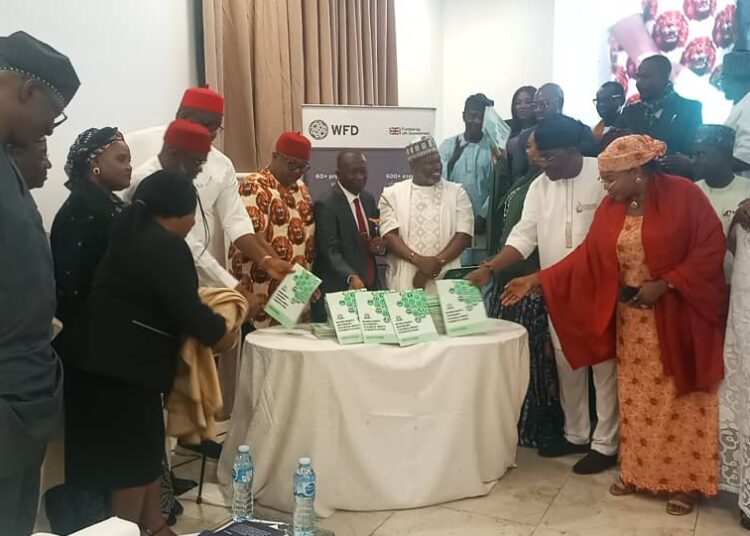A new assessment of Nigeria’s political parties has highlighted significant deficiencies in inclusivity, legal compliance, and public engagement across the board.
The findings were contained in the latest Political Parties Performance Index (PPPI) unveiled alongside the updated Inter-Party Advisory Council (IPAC) Constitution at an event held on Wednesday in Abuja.
Developed by the Westminster Foundation for Democracy (WFD), the PPPI serves as a data-driven tool for evaluating how political parties operate in key areas such as internal democracy, transparency, and responsiveness to citizens.
WFD Nigeria Country Director, Adebowale Olorunmola, noted that while political parties often rated themselves highly, the experiences of party members and the public painted proved otherwise.
“On inclusivity, parties gave themselves a score of 82.4 per cent, yet their members rated them at 67.6 per cent, revealing a 15 per cent gap between perception and reality,” Olorunmola explained.
“Similarly, legal compliance had a self-reported average of 86.4 per cent, but party members scored this lower at 72.4 per cent. Meanwhile, citizens rated public outreach at just 45.9 per cent, the weakest performance area across all indicators.”
He emphasised that the launch of the PPPI report and adoption of the revised IPAC Constitution signified an important step toward strengthening internal party democracy and accountability in Nigeria.
“These tools are transformative. They go beyond paperwork, they can drive political parties to become more open, responsive, and genuinely representative of the people they serve,” he added.
The revised IPAC Constitution is expected to serve as a guidepost for ethical political practice and collective responsibility among Nigeria’s 19 registered political parties.
Speaking at the event, IPAC national chairman, Alhaji Yusuf Dantalle, described the new constitution as a shared moral compass for parties, especially those that serve as platforms for elected public officials.
“As political leaders, we are obligated to uphold good governance and prioritise the welfare of the people over personal ambitions,” Dantalle stated. “Our actions must align with Section 14 (2)(b) of the 1999 Constitution, which places people’s wellbeing at the heart of governance.”
Also, speaking at the launch, Professor Kunle Ajayi, a National Commissioner at the Independent National Electoral Commission (INEC), called out political parties for failing to implement their own internal rules.
“Non-compliance with party constitutions is the root of many internal crises,” Ajayi said. “This framework is meant to hold parties accountable to themselves and to the public. Political parties must remain visible and active beyond election seasons.”
Contributing to the discussion, Minority Leader of the House of Representatives, Hon. Kingsley Chinda, identified a lack of political ideology, discipline, and long-term vision as major weaknesses of today’s party structures.
He described the PPPI as a strategic framework aimed at reshaping political conduct through transparency, inclusion, and sustained engagement.
“What we need now is a national dialogue on reforming political party systems. This dialogue must look beyond present failings to explore the transformative potential of political institutions,” Chinda said.
The PPPI report is expected to engender reforms within political party structures and contribute to more inclusive, participatory, and citizen-centered governance across Nigeria’s democratic ecosystem.
We’ve got the edge. Get real-time reports, breaking scoops, and exclusive angles delivered straight to your phone. Don’t settle for stale news. Join LEADERSHIP NEWS on WhatsApp for 24/7 updates →
Join Our WhatsApp Channel










